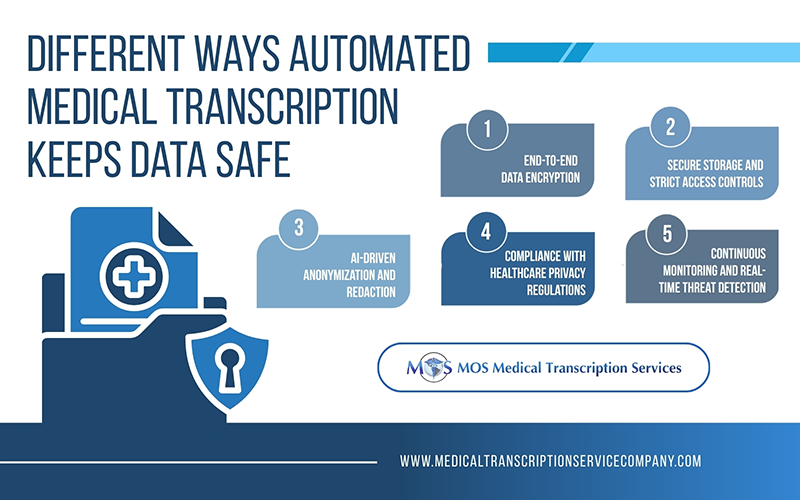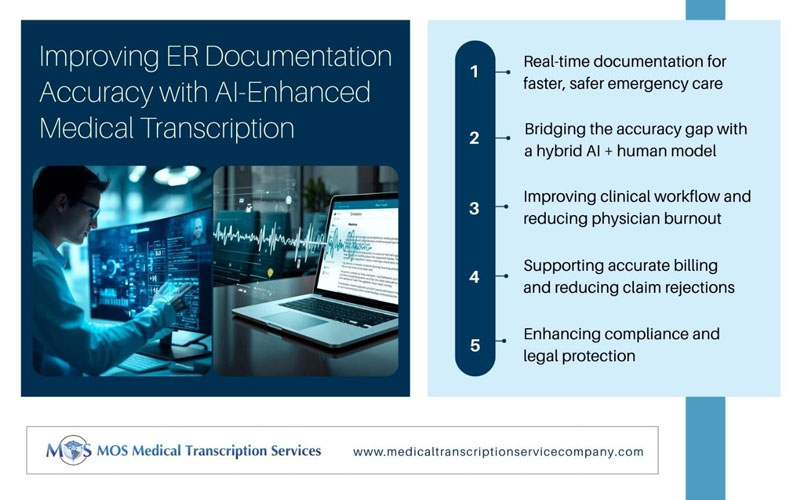Physician burnout, also referred to as “physician fatigue”, is a state of emotional, mental, and physical exhaustion caused by long-term involvement in repetitive and emotionally demanding situations. Physician burnout has an impact on not just their work performance but also the quality of treatment they deliver to their patients, which is quite worrisome. The demand for copious medical documentation is a major cause of physician burnout. One of the best ways to prevent physician burnout is outsourcing medical transcription to a reliable service provider who can assist physicians in drafting error free medical records.
According to a poll of over 15,000 doctors in the United States, around 42% said they were burnt out. Sixty-six percent of respondents proposed less bureaucratic chores, while 39 percent suggested lower working hours to reduce physician burnout. Furthermore, numerous physicians stated that more money and a more tolerable work schedule would alleviate the sensation of burnout.
Causes, signs and symptoms of physician burnout
Causes
Burnout is frequently induced by long periods of high stress, yet stress does not happen overnight. As a result, the specific cause of burnout differs from one person to the next. The medical industry is wide and includes many different professions, each with its own set of pressures. The main causes of burnout in medicine, on the other hand, are relatively similar and can be divided into three categories:
- Work: Work conditions are one of the top-most causes for physician burnout. Other factors such as time pressure, dysfunctional work dynamics, corporate disorganization, overwhelming responsibilities such as emergency-room duties or chaotic or high-pressure environments can also lead to physician burnout.
- Lifestyle: Lack of sleep, refusal to seek help when you are overworked, monotonous or repetitive job, and investing all your time and energy into it can lead to burnout.
- Personality: Some people are born with some personality traits that make them prone to certain conditions. Burnout is more prone to strike people with perfectionist tendencies who are exceptionally high achievers and need to be in control of everything. People with a pessimistic outlook on life may find it difficult or impossible to delegate duties.
The concept of a suitable work-life balance is also important. You should be able to balance your personal and business lives.
Signs and symptoms
- Physical symptoms: Increased fatigue, frequent illness, increased headaches, back pain or muscle aches, disrupted sleep — either sleeping too much or not sleeping enough, and changes in appetite.
- Emotional symptoms: Feeling like a failure at your job or doubting your professional abilities, helpless about, trapped in or defeated by your work situation, feeling isolated and detached, unmotivated about the job, feeling less satisfied or accomplished in your work and unable to look at things positively or with hope.
- Behavioral symptoms: Avoiding employment obligations, isolating oneself from family, friends, and coworkers, procrastination, aiming one’s rage at the people around them, turning to food, drugs, or alcohol as a coping method, skipping work, arriving late, or leaving early on a regular basis.
To avoid burnout, there should be a work-life balance, as mentioned earlier. For this, you need to delegate various tasks to suitable entities. Thus, physicians can entrust medical documentation requirements to a good medical transcription service provider and be relieved of tedious EHR documentation and management.
How Outsourcing Medical Transcription Can Lessen Physician Burnout
- Easy transition to EHR: The shift to an EHR is one of the leading causes of stress and burnout among doctors. Doctors aren’t trained to fill out forms and paperwork; instead, they’re focused on providing the best possible care to their patients. EHRs provide clinicians with more detailed data on patients, which they may utilize to improve outcomes, but switching to a new system isn’t always easy. Medical transcribing services take the bother out of keeping track of patients’ notes, removing one roadblock to full EHR implementation. Doctors can just dictate notes into their EHR rather than point and click.
- Saves time: Doctors are busy people who don’t like wasting time when they have a long list of patients to diagnose and cure. Spending half of their day typing up notes is a proven way to lower job satisfaction and trigger burnout symptoms. Outsourcing transcribing allows doctors to focus on what they do best, i.e. working with patients.
- Good quality care: Medical transcribing demands a high level of skill, and accuracy is an absolute must. Taking notes on a daily basis can be tiring and doctors can make mistakes, but outsourcing transcription ensures that those errors do not make it into the final record. Quality transcription services begin with accurate transcription, identify any errors, omissions, or potential conflicts within each document. Careful attention to detail ensures that physicians are working with accurate data, helping them make better decisions for their patients. Doctors are more confident in their care when they have confidence in their notes. Maintaining that level of self-assurance can mean the difference between burnout and job happiness in the long run.
- Helps keep up with changing regulations: Practices must stay abreast with the ever-changing reimbursement situation. Bundled payments are one example of this expanding practice. In addition, as more patients want improved pricing transparency, practitioners must pay attention to alternative payment mechanisms and the growing popularity of tiered and limited networks. In the face of increased rules, outsourcing can help practices stay competitive.
- Better data security: A data breach can potentially cost millions of dollars, not to mention the damage to one’s reputation. While clinic personnel must be HIPAA-trained, they are unlikely to be data security experts. By outsourcing duties like transcription, practices can stay compliant while also ensuring that their records are protected using data security best practices.
Physicians are increasingly aware that they are exposed to workplace factors that increase their risk of burnout. Furthermore, it is expected that long-term exposure to work-related stress will lead to burnout. This, however, can be avoided by outsourcing some of your time-consuming tasks. If medical practices decide to hire medical transcription services, then they will be able to combat physician burnout to a great extent without compromising the quality of patient care.



